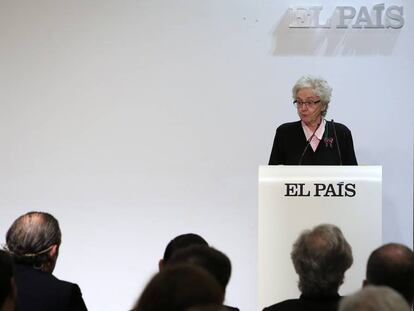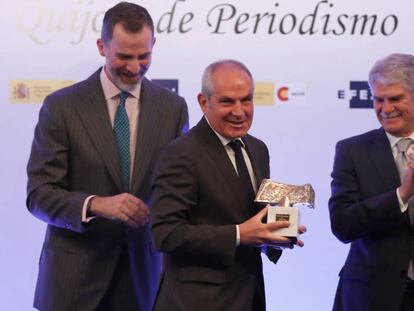EL PAÍS welcomes new management team
Spain’s leading newspaper looks to reinforce its leadership at a time when journalistic excellence and rigorous reporting have become an evident social demand
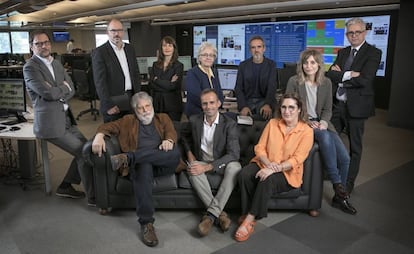
The new editor-in-chief of EL PAÍS, Soledad Gallego-Díaz, faces the challenge of reinforcing her news organization’s leadership at a time when journalistic excellence and rigorous reporting have become an evident social demand.
Other top goals of the new management team include developing the newspaper’s digital presence even further, increasing its role and influence in Latin America, and building an ambitious global project for economic news.
The members of Gallego-Díaz’s new management team are Mónica Ceberio, Jan Martínez Ahrens and Borja Echevarría, who are the new managing editors; Javier Moreno, himself a former editor-in-chief from 2006 to 2014, who will now oversee the Americas edition; Miguel Jiménez, in charge of all economic content at PRISA Noticias; Montserrat Domínguez, who will edit the glossy EL PAÍS Semanal Sunday magazine, as well as being in charge of all weekly periodicals; and Miquel Noguer, who will remain in charge of the Barcelona bureau, but now as a deputy editor.
The Spanish news section of the paper will be expanded, and headed by Xosé Hermida and Claudi Pérez. The new head of the Opinion section will be Máriam Martínez-Bascuñán, with José Andrés Rojo as editor. Joaquín Estefanía, another former EL PAÍS editor-in-chief from 1988 to 1993, will collaborate with Gallego-Díaz as her advisor. The appointments have been backed by a non-binding vote cast by the newsroom.
Soledad Gallego-Díaz, (Madrid, 1951), editor-in-chief
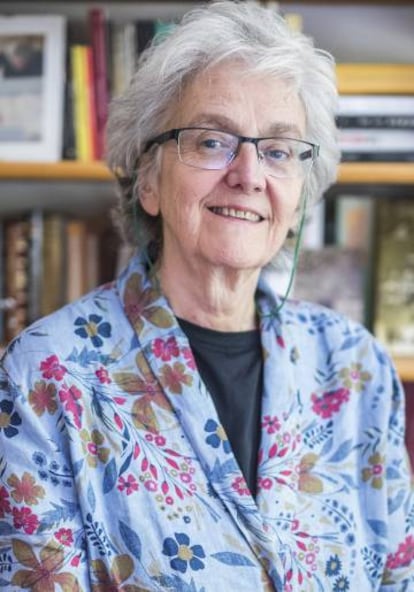
Soledad Gallego-Díaz studied at the Official School of Journalism and worked for the news agency Pyresa, then for Cuadernos para el Diálogo until the publication shut down in 1978. She joined EL PAÍS in 1976 as a political news contributor, then joined the national desk. She covered the parliament beat during the intense years of the democratic Transition, and was one of three journalists who secured an exclusive copy of the draft of the 1978 Constitution. In late 1979 she became the EL PAÍS Brussels correspondent, then covered London and Paris. Back in Madrid, she was assistant to the editor and deputy editor for five years. Gallego-Díaz was also the New York and Buenos Aires correspondent for EL PAÍS, and also served as the Reader’s Ombudswoman. Until her appointment as editor-in-chief, she wrote a weekly Sunday column featuring political analysis. Since September 2012 she has also been a regular contributor to the Cadena SER radio program Hoy por hoy.
Mónica Ceberio Belaza (Bilbao, 1973), managing editor
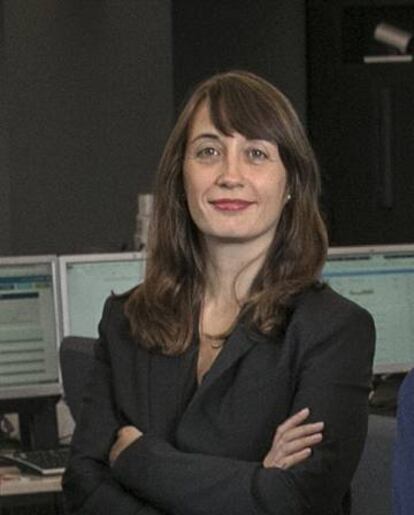
A graduate in law and political and administrative science from Madrid’s Autónoma University (UAM), Ceberio completed the UAM-EL PAIS master’s degree and worked as a lawyer before joining the newspaper in 2005. She worked on the politics, general news and international desks, as well as on the weekly magazine EL PAÍS Semanal. She was the special correspondent in Washington DC during the 2008 presidential campaign, and editor of the features desk. An expert on social, legal and penitentiary issues, Ceberio has published exclusive stories about meetings between ETA victims and jailed terrorists. In 2009 she received an award from the Equality Ministry for a series of in-depth stories about sexual exploitation in Spain. She also accepted the 2014 Ortega y Gasset Award for digital journalism for a series on home evictions that she coordinated and co-wrote with Álvaro de Cózar.
Jan Martínez Ahrens (Paris, 1966), managing editor
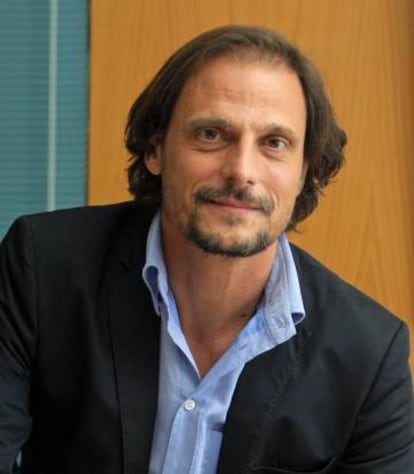
After graduating in philosophy, Ahrens completed the UAM-EL PAÍS master’s degree and a course at the IESE Business School. He is a member of the German Marshall Fund and took courses at the Iberoamerican New Journalism Foundation led by the Nobel writer Gabriel García Márquez. He joined EL PAÍS in 1992, first at the Valencia bureau and then in Madrid. Ahrens later headed the general news desk, providing extensive coverage of gender violence and social rights. In 2006, he was appointed deputy editor of the Sunday edition, and in 2012 he headed the General Information edition. At this time Ahrens participated in the publication of the WikiLeaks cables, and later in the Guantánamo papers – more than 700 confidential reports detailing prisoner abuse at the US base. Both projects were conducted in partnership with other major news organizations. In 2014, he coordinated Chinaleaks, which used documents obtained by the International Consortium of Investigative Journalists (ICIJ) to unveil the use of tax havens by China’s Communist elite. That same year he became the correspondent for Mexico, Central America and the Caribbean. In early 2017, he became the chief correspondent in the United States, where he followed the Trump presidency. That year he received the International Press Club award for best Spanish correspondent abroad.
Borja Echevarría (Bilbao, 1968), managing editor
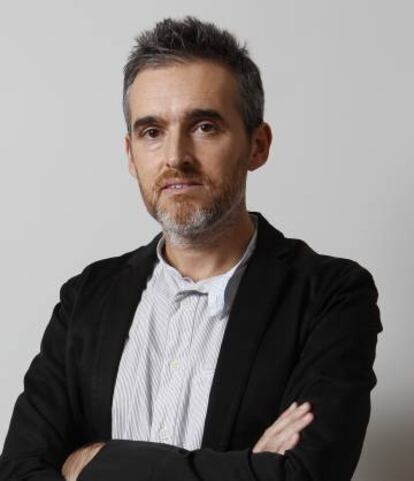
He began working as a journalist for the Spanish daily El Mundo, where he was a reporter for the general news and sports desks (which he later became editor of). He also headed the international desk and served as deputy editor of the digital edition. Echevarría left El Mundo in 2002 to found Soitu, a pioneering website that won the excellence award from the US Online News Association two years in a row. In 2010, Echevarría joined EL PAÍS as deputy editor in charge of digital strategy. It was at this time that the online edition of this newspaper became a leader on ComScore, following a far-reaching transformation. At this time he also won the Ciudad de Badajoz journalism award for an in-depth story about organ transplant tourism by Spaniards in China. In 2012, he was a recipient of the prestigious Nieman award at Harvard, and he spent a year studying the impact of technological disruption in media organizations, and how to adapt to the new ecosystem. In 2014, Echevarría was named vice-president and editorial director of Univision Noticias, the biggest Spanish-language news organization in the United States. Under his leadership, Univision went on to win numerous industry awards, including three Ortega y Gassets, one Rey de España, the Robert F. Kennedy Award and the Hillman Prize. He is a member of the advisory board of the Spanish program at CUNY in New York, and an instructor at the Gabriel García Márquez Foundation for New Iberoamerican Journalism.
Javier Moreno Barber (París, 1963), Americas edition chief
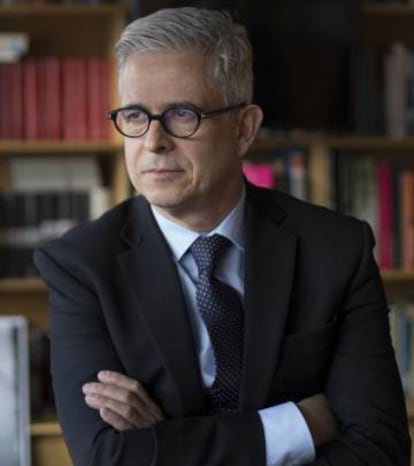
A chemistry graduate of Valencia University, Moreno worked in Germany until 1992, when he completed the UAM-EL PAÍS master’s degree in journalism. He joined the economy desk and in 1994, was transferred to the Mexico edition, which is the genesis for the current Americas edition of EL PAÍS. After returning to Spain, he was assigned to the international desk. In 1999, he was named editor of the economy section and in 2002 he became the newspaper’s correspondent in Berlin. In 2003, he became the head of the financial daily Cinco Días. In 2005, he returned to EL PAÍS, first as a deputy editor in charge of the Sunday edition, and later as a managing editor. In 2006, coinciding with the 30th anniversary of EL PAÍS, he was named its editor-in-chief, a job he held until May 2014. During his tenure the newsroom participated in international projects such as the US cables leak, in partnership with The New York Times and The Guardian, and Chinaleaks. There were also major national stories such as the Bárcenas papers, part of the Gürtel graft scandal that recently triggered a no-confidence motion against the Spanish prime minister. In 2013, he set up the Americas edition of EL PAÍS. After leaving his editorial position, Moreno became a founding member of the Leading European Newspaper Alliance (LENA), which brings together seven leading news organizations. In December 2017, he was named director of the UAM-EL PAÍS journalism school.
Miguel Jiménez (Madrid, 1968), deputy editor, Economy and Employment
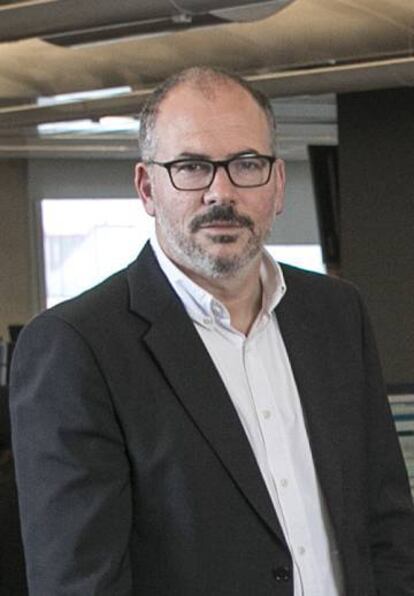
After graduating in law and economics at Pontificia Comillas University, and adding a degree in political science from the distance university UNED, Jiménez completed the UAM-EL PAÍS master’s program. He also holds a degree in Management Development from the business school IESE and took a course in digital transformation offered jointly by ESADE and Singularity University in Silicon Valley. He started out as a journalist on the international desk of EL PAÍS, and also worked for the official diary of the International Monetary Fund (IMF) Assembly, and for the financial magazine Dinero. In 1996, he joined the financial newspaper Cinco Días, where he was editor of the markets section, chief editor of the weekend editions and business sections, and deputy editor until he switched to EL PAÍS in 2006 as head of the economy desk and the Business supplement. In 2014, he became general editor of economic news and in 2015 he was named deputy editor for Information at EL PAÍS.
Montserrat Domínguez (Madrid, 1963), assistant editor
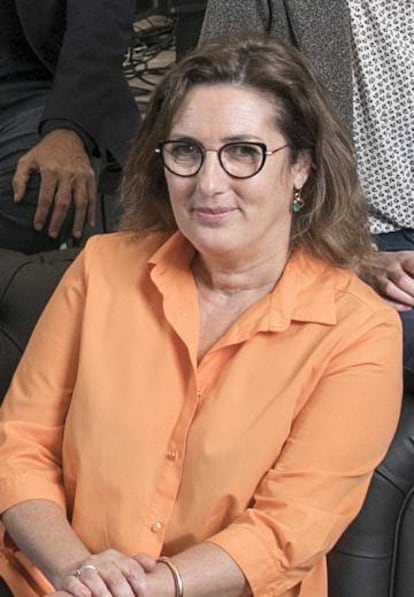
Domínguez earned a journalism degree from Complutense University in Madrid and traveled to New York on a Fulbright scholarship to study at the Columbia University Graduate School of Journalism. Since 2012, she has been the editor-in-chief of the HuffPost, to which she will continue to contribute. Domínguez is also a regular contributor to the Cadena SER radio program La Ventana, and to the political section of the popular talk show El Programa de AR, aired on Telecinco. She has worked for the Efe news agency and for the private networks Canal+, Antena 3 and Telecinco. She has been a news director and host on Telecinco, and for four years she headed the debate and interview program La Mirada Crítica, which earned her a Salvador de Madariaga European Journalism Award. She has also been a political columnist for the daily La Vanguardia. Before joining the HuffPost, she headed the Cadena SER radio program A vivir que son dos días, which attracted record listeners on weekends. She is the vice president of the Association of European Journalists, and has accepted a number of awards for her work, including two Antenas de Oro for her radio and television work, and the Carmen Olmedo Checa prize awarded by the Andalusian government for her lifetime commitment to equality issues.
Miquel Noguer Bau (Vic, Barcelona, 1977), assistant editor
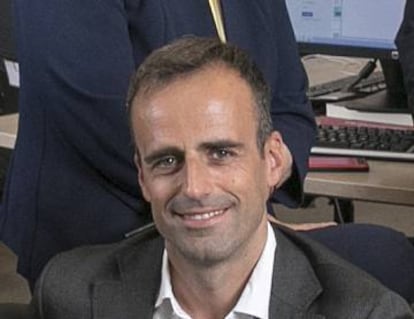
Noguer has a journalism degree from Universitat Autònoma in Barcelona. He began his journalism career in the weeklies La Marxa de Catalunya and Ausona, then joined EL PAÍS, where he was a reporter on Barcelona’s national desk beginning in 2004. In 2016, he was appointed chief editor of the Catalonia bureau.
Máriam Martínez-Bascuñán (Madrid, 1979), head of Opinion
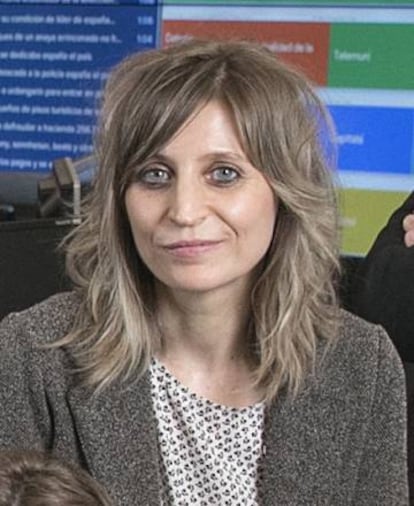
A doctor in political science, her PhD dissertation earned an award at Madrid’s Autónoma University, where she also teaches political science. Martínez-Bascuñán is a specialist in political theory and feminism. She completed her studies in political science and law at the Institut d’Études Politiques in Paris, and has been a visiting researcher at Chicago University and Columbia University in New York. She wrote the 2012 book Género, emancipación y diferencias (or, Gender, emancipation and differences), and co-authored the 2017 Populismos (Populisms) with Fernando Vallespín. Martínez-Bascuñán has also contributed academic articles to the Journal of World Political Science, REIS, ISEGORÍA and RECP, among others, and participated in academic blogs such as Agenda Pública. She has been a columnist for EL PAÍS since June 2016.
Joaquín Estefanía (Madrid, 1951), advisor to the editor-in-chief
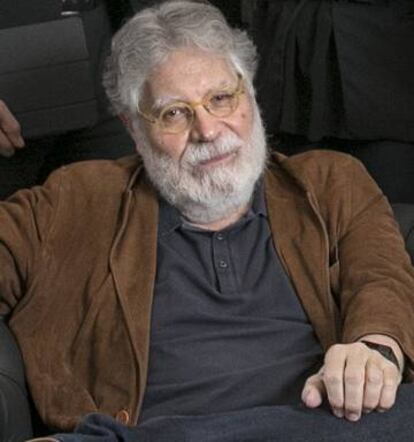
Estefanía holds a dual degree in economy and communication from Madrid’s Complutense University. He began his journalism career at the daily Informaciones, then began working for Cuadernos para el diálogo. From 1988 to 1993 he was editor-in-chief of EL PAÍS; for the following three years he headed the publications section of the PRISA Group, the parent company of EL PAÍS. Between 1996 and 2002 he was head of the Opinion section of this newspaper, and later helmed its journalism school until 2014.
Álex Grijelmo, nominated to head the UAM-EL PAÍS Journalism School
Álex Grijelmo (Burgos, 1956) has been nominated to head the UAM-EL PAÍS journalism school. He holds a PhD in journalism from Madrid’s Complutense University and completed a course in management at the business school IESE.
He began his journalism career at the Burgos-based newspaper La voz de Castilla, and in 1977 he was hired by the news agency Europa Press. He joined EL PAÍS in 1983, and later published an exclusive story about a Constitutional Court ruling against a law regulating Spain’s territorial structure. In 1991, he uncovered massive fraud in distance voting perpetrated by the Popular Party (PP), and his reporting triggered a change to Spanish electoral legislation.
For 17 years he was deputy editor of the Madrid section, national desk chief, and he also headed the Sunday, General News and Sports sections. Since 1998 he has been in charge of the newspaper’s style guide.
In 2000, he took charge of the network of local and regional newspapers owned by the PRISA Group, and two years later he became director general for content at Prisa Internacional (a division that includes print, radio and television outlets in Colombia, Bolivia, Mexico, Chile, Panama and Costa Rica).
In 2004, he joined a project to achieve independent public information outlets, and he accepted the leadership of the Efe news agency. During his tenure, he created the Fundación del Español Urgente (Fundéu), secured approval for the newsroom’s articles of association in order to guarantee reporters’ independence, and published a style guide containing the agency’s first ethical code. This was also the first time that the state-owned agency made a profit.
Grijelmo was the first journalist to interview Mariano Rajoy following his inauguration as Spain’s prime minister in January 2012. In May of that year he joined Prisa Noticias as head of International Development, and in 2013 he became the deputy to the editor-in-chief of EL PAÍS at the time, Javier Moreno.
In 1999, Álex Grijelmo received the Miguel Delibes journalism award, and in 2006 he accepted an honorary degree from the university foundation ESERP for his media management. He also has an Antena de Oro award for his contribution to the national radio station RNE’s program No es un día cualquiera. In April of this year, he became a member of the Colombia Language Academy, and he has taught at the New Journalism Foundation, created by Gabriel García Márquez, with whom he co-directed a reporting workshop in 1998.
